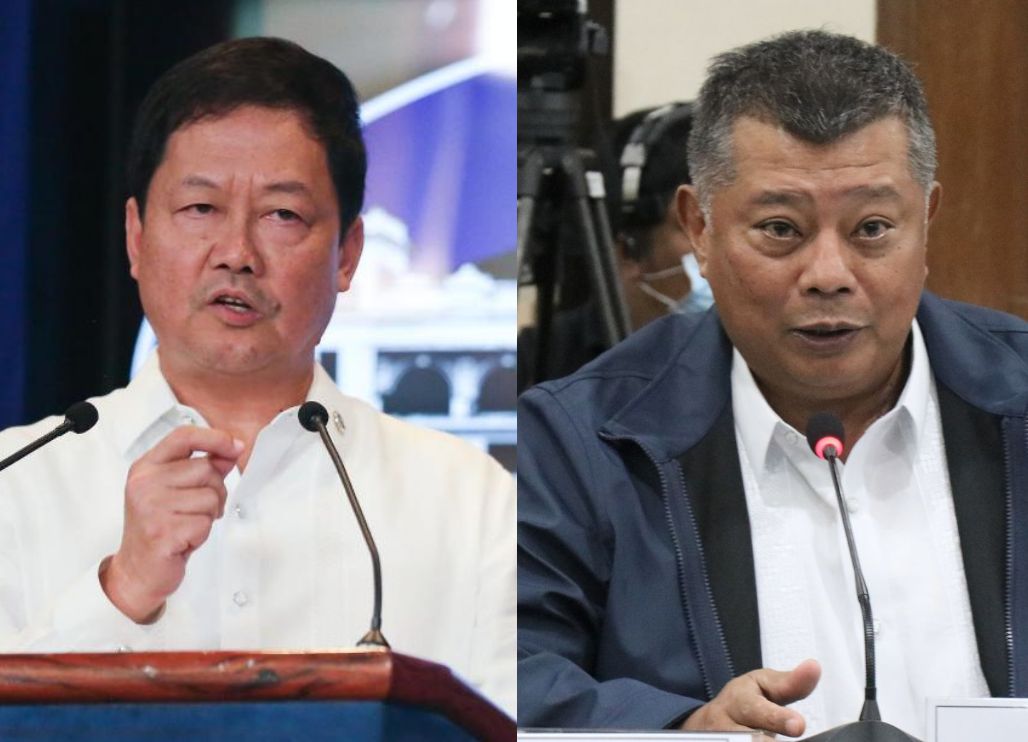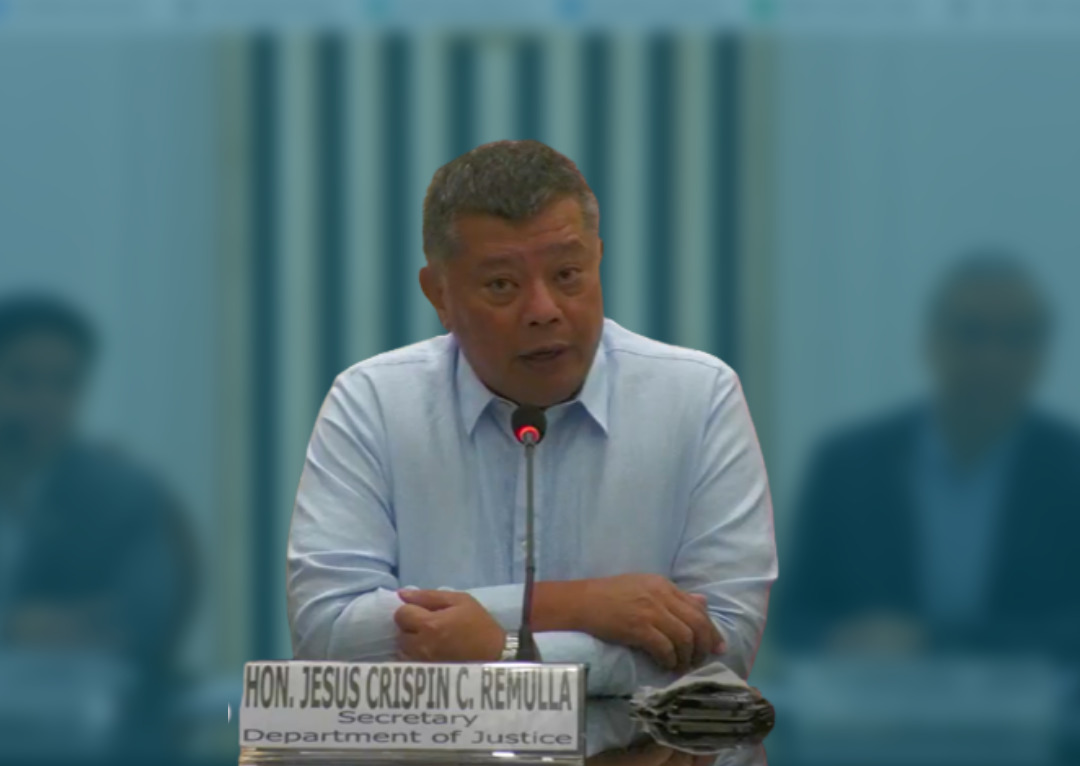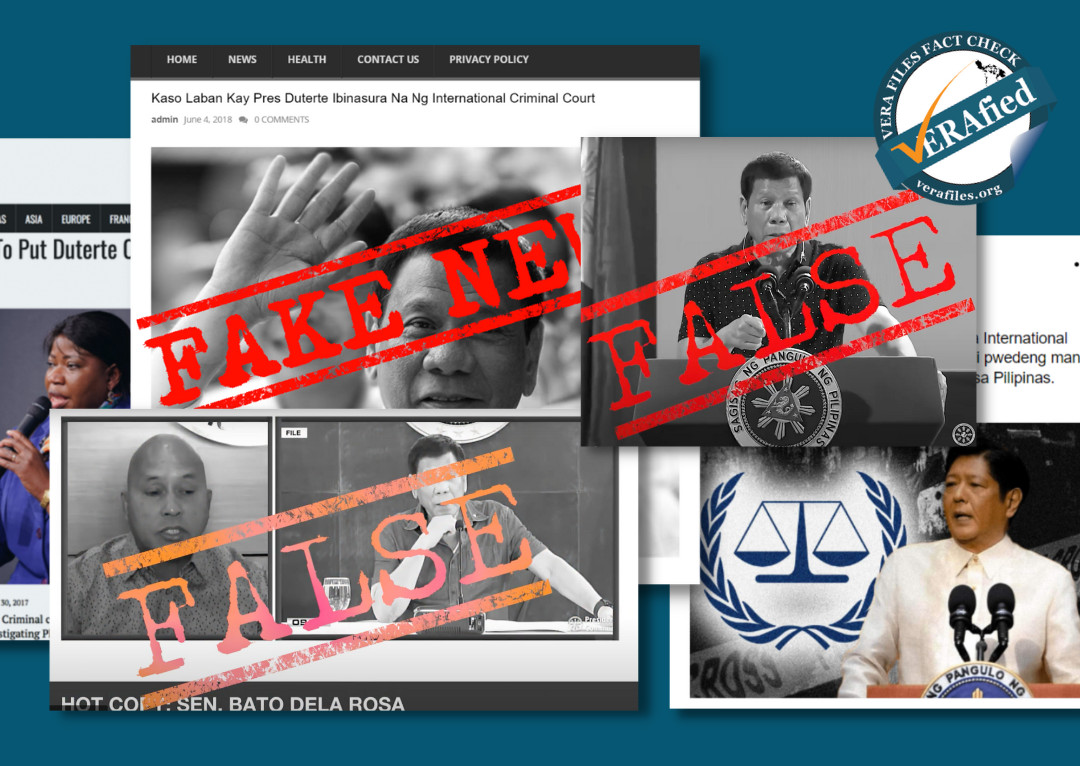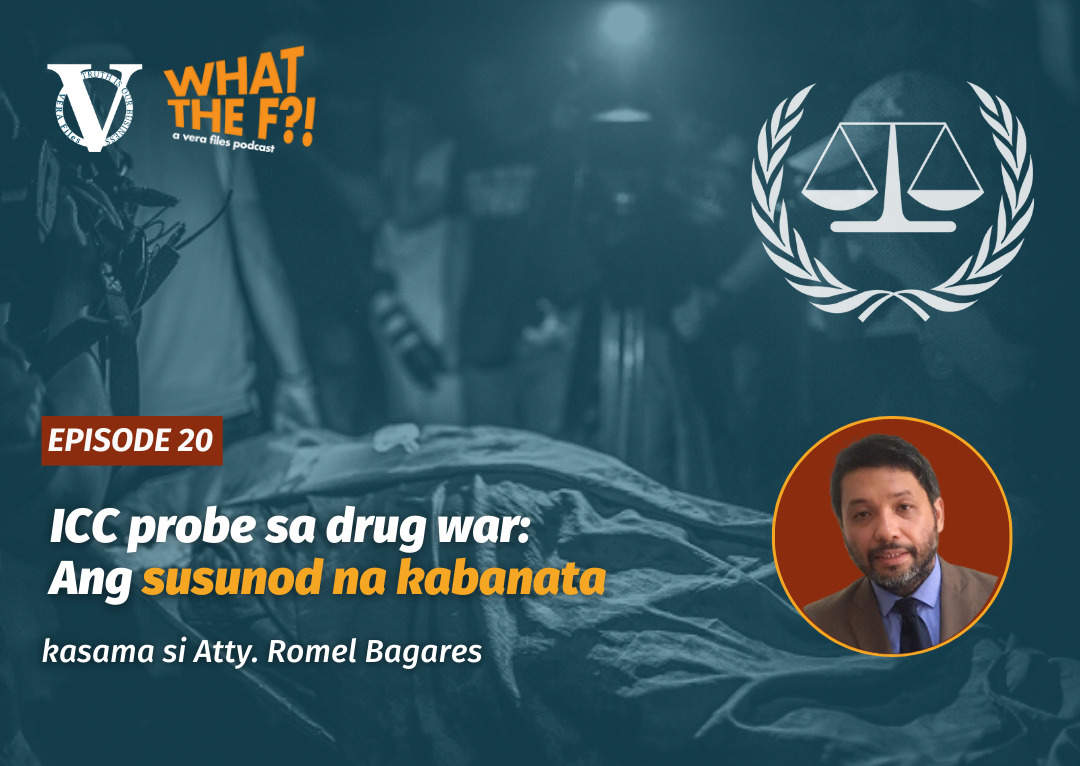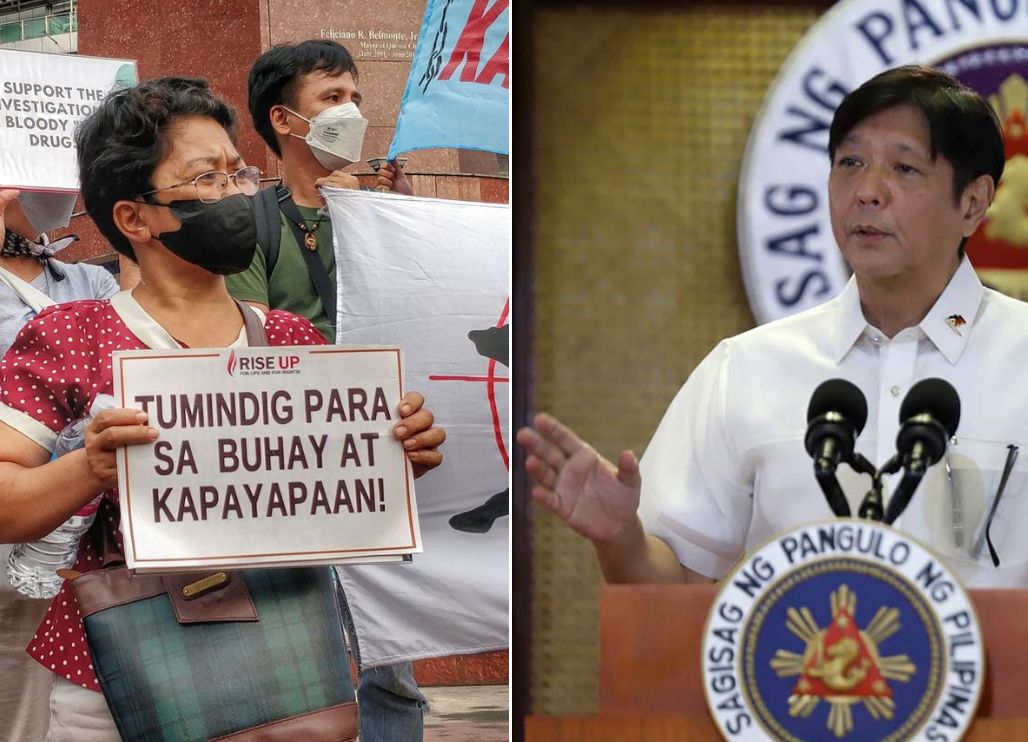While Malacanang continued to remain silent, Justice Secretary Jesus Crispin Remulla said he will advise Solicitor General Menardo Guevarra to stop engaging with the International Criminal Court (ICC) after its rejection of the government’s appeal to stop the resumption of the investigation on the Philippines’ war on drugs
Asked by reporters if the government plans to file a motion, Remulla said, “Kailangan sabihan ko muna si SolGen Guevarra na tigilan na ‘yan kasi wala nang mangyayari. Malamang mag-usap kami sa Lunes ‘pag nagkita kami sa SONA. At sasabihan ko siyang tigilan na ‘yan. Wala na, tapos na tayo diyan.”
(I need to tell SolGen Guevarra to stop already because nothing will happen anymore. We might talk on Monday when we see each other at SONA [State of the Nation Address]. I’ll tell him to stop. It’s finished, we’re done.]
Reacting to the July 18 decision, Remulla told reporters he was happy that two judges — Presiding Judge Marc Perrin de Brichambaut and Judge Gocha Lordkipanidze — of the five-member Appeals Chamber I dissented in dismissing the government’s argument that the ICC no longer had jurisdiction over the Philippines after its official withdrawal of membership from the Rome Statute on March 16, 2019.
“Isang bagay ‘yan na nagsasabi sa atin na nasa tamang landas tayo ng pag-iisip tungkol sa sovereignty ng Pilipinas, na hindi tayo magpasakop sa mga taong nais pakialaman ang sistema ng hustisya na gumagana naman sa ating bansa,” the Justice chief pointed out.
(That’s one thing that tells us we are on the right track regarding the sovereignty of the Philippines. That we will not allow our country to be invaded by people who want to interfere with the justice system that is functioning in our country.)
In their joint dissenting opinion, Brichambaut and Lordkipanidze said they would have granted the government’s assertion that the Pre-Trial Chamber, a separate judicial branch of the ICC that authorizes the launch of investigations, erred in finding that the court still had jurisdiction over the Philippines.
“Consequently, we would have found the remaining grounds of appeal moot. We would also have directed the Pre-Trial Chamber to withdraw its authorisation for the Prosecutor’s investigation and discontinue all proceedings in the situation,” they said.
(Read Victims, rights groups ecstatic over ICC decision to resume drug war probe)
Meanwhile, the Commission on Human Rights (CHR) acknowledged the resumption of the ICC drug war probe “as part of due process to uphold the rights of victims” and exacting accountability to perpetrators. It encouraged the Marcos administration to comply with its human rights obligations.
“As the country’s independent national human rights institution, CHR encourages the Government of the Philippines to view this decision as an opportunity to give better meaning to President Ferdinand Marcos Jr’s commitment at the onset of his presidency to ensure a “high-level of accountability” for human rights violations during his term,” the commission said in a July 19 statement.
While Marcos remained mum on the issue, Vice President Sara Duterte-Carpio said she had “no comment.” Duterte-Carpio, daughter of former president Rodrigo Duterte, was tagged in a document submitted to the ICC for allegedly knowing and approving killings when she was mayor of Davao City. (Read VP Sara, 2 senators named in ICC probe documents)
The elder Duterte, who sanctioned the use of excessive force and violence in his administration’s drug war, “shrugged off” the decision, according to his former spokesperson, Harry Roque.
“FPRRD has always maintained that as an independent and sovereign state, only Philippine courts can try any crime committed in [Philippine] territory. He has time and again said that because of this, he will face all his accusers anytime but before Philippine courts and before Filipino Judges only,” Roque said in a statement.
‘Gaping hole’
In a statement, Guevarra called a “gaping hole” the failure of the Appeals Chamber to rule on the alleged lack of jurisdiction of the ICC over the Philippines. He said the unresolved issue on the court’s jurisdiction could serve as a “powerful argument” for personalities who may be investigated and charged by the ICC
“The gaping hole in the ICC decision was its failure to rule on jurisdiction. The majority (3) did not tackle it, and the minority (2, including the presiding judge) took a strong position that the ICC had already lost jurisdiction over the [Philippines] when the ICC prosecutor sought to commence his investigation,” Guevarra told reporters in a message.
Another way to stop the investigation, according to assisting foreign counsel Sarah Bafadhel, is if the ICC prosecutor himself acknowledged the court’s lack of jurisdiction over the state and asks to stop the conduct of the probe.
“… the prosecution may also acknowledge that … because if the court does not have jurisdiction, then there would be little purpose to continue its resources and that’s what’s really fundamental about today’s decision,” she said in a July 18 press conference in The Hague..
The Philippines’ withdrawal from the ICC on March 16, 2019 has been central to the arguments of the Duterte and Marcos administrations in refusing to cooperate with the drug war probe of ICC Prosecutor Karim Khan. (See Disinformation about ICC echoes Duterte’s defense, targets prosecutors)
In September 2021, the ICC Pre-Trial Chamber authorized the launch of the investigation covering the alleged crimes against humanity that occurred under the Duterte administration’s drug war from July 2016 to March 16, 2019, as well as the killings by the so-called vigilante group “Davao Death Squad” from November 2011 to June 2016.
The Duterte administration, however, requested Khan to defer to local proceedings, prompting the prosecutor to temporarily suspend the probe in November 2021.
In June 2022, Khan sought the Pre-Trial Chamber’s permission to resume the probe, which was granted last Jan. 26,
Warrants of arrest vs. Dela Rosa, other officials
Sen. Ronald “Bato” Dela Rosa, then police chief who gave orders to carry out the drug war, said he is ready to be arrested through an ICC warrant, but only if the government will implement it.
“Andito naman ako. Hindi ako magtatago. Sige lang. Kung meron silang warrant of arrest, let them serve the warrant. Let them implement the warrant… walang problema. Basta gobyerno ng Pilipinas ang huhuli sa akin, huwag lang ‘yung mga foreigner na makialam dito sa ating bansa,” Dela Rosa said.
(I’m just here. I won’t hide. Just proceed. If there’s a warrant of arrest, let them serve the warrant. Let them implement the warrant … no problem. As long as the government of the Philippines will arrest me, not those foreigners who want to meddle in our country.)
Senate President Juan Miguel Zubiri stood firm that the Senate will protect Dela Rosa from an arrest warrant of the ICC, except if local courts order the arrest of the police-turned-senator.
“… we have local jurisdiction, local courts [are] supposed [to be the] one that will release the warrant of arrest. Without the local warrant of arrest issued by the courts, then as far as I’m concerned, he is still a working member of the Senate and accorded of course that respect, similar to Senator [Leila] De Lima and Senator [Antonio] Trillanes,” Zubiri said.
In case an arrest warrant is issued for Duterte and Dela Rosa, the executive branch is ready to give advice, with Remulla warning them about traveling to countries where the ICC could intervene.
“Sa ibang bansa, kung tingin natin ay may pagka-alangan, eh di mag-usap muna kami kung pupunta sila sa ibang bansa na maaaring magkaroon ng problema (If we think there is uncertainty, then we should first talk before they travel to some other country where there could be a problem),” Remulla said.
The former president and Dela Rosa were among the local officials named by former ICC prosecutor Fatou Bensouda in her May 2021 request to the ICC Pre-Trial Chamber to conduct an investigation into alleged crimes against humanity that were the result of the Duterte administration’s drug war. Bensouda alleged that at least 12,000 to 30,000 suspected drug personalities died during those operations.
The ICC, however, has yet to officially name any suspects in relation to the drug war investigation.
